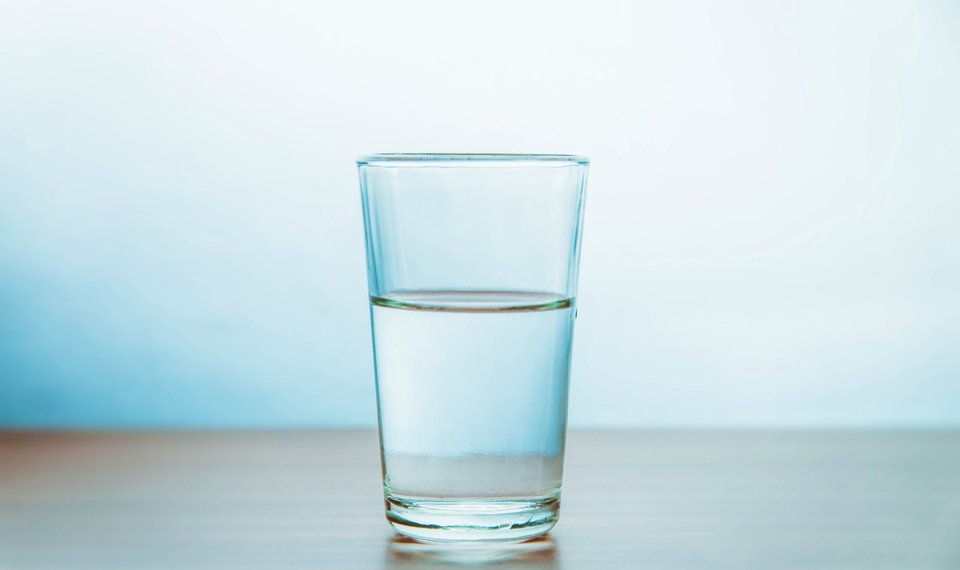A Personal Passion
Skincare is a personal passion of mine, Darlings. I’ve often written about how to cure dry skin and skin that’s red or just skincare routines in general.
Since it’s still chilly in some parts of the United States and I’m sure many of you live in dry climates, dry skin is a very common trait that many of us share. People of all ages and backgrounds can experience dry skin, especially in dry climates or as they age.
What causes dry skin? Well, of course, dry environments, low moisture in the air, or soaking in hot water. These factors can disrupt the skin’s hydration and compromise the skin’s natural moisture barrier, making it harder for the skin to retain moisture. A weakened skin barrier is a major factor contributing to dry skin. If your hands are dry it could not only be from the environment but from over washing them (which might be happening now because of the Coronavirus), which strips away the skin’s natural oils, essential for moisture retention.
A consistent skin care routine is important to help manage and prevent dry skin.
So, how do we prevent dry skin? Let’s take a look!
Understanding Dry Skin
Dry skin, or xeroderma, is something many of us experience—especially as the seasons change or when we’re exposed to dry air and harsh weather. If you’ve ever noticed your skin feeling tight, flaky, or itchy, you’re not alone. Dry skin happens when the top layer of your skin loses too much moisture, and the skin’s natural moisture barrier becomes compromised. This barrier is essential for keeping your skin soft, smooth, and protected from the elements. When moisture evaporates from the skin’s surface, it can lead to dryness and irritation.
When your skin’s protective barrier is weakened—whether from hot showers, low humidity, or using harsh soaps—it can’t hold onto moisture as well. This can lead to very dry skin, which may crack, feel itchy, or even become irritated. Sensitive skin types and those with conditions like atopic dermatitis are especially prone to dry skin and may need extra care to prevent dryness and soothe irritation.
To treat dry skin and help your skin stay healthy, it’s important to understand what causes it. Dry air, hot water, and frequent washing can strip your skin of its natural oils, leaving it vulnerable. Skincare products with alpha hydroxy acid, deodorant soaps, or strong fragrances can also make skin dry and trigger allergic reactions. Even laundry detergents can play a role—dermatologists recommend choosing fragrance free options to help prevent skin irritation.
One of the best ways to relieve dry skin is to apply moisturizer immediately after bathing, while your skin is still damp. This helps lock in moisture and supports your skin’s natural barrier. Look for moisturizing products with hyaluronic acid, fatty acids, and other ingredients that attract moisture and nourish the skin’s surface. Petroleum jelly and mineral oil are also excellent for sealing in hydration, especially on very dry or affected areas.
Don’t forget to protect your lips with a good lip balm, and always use a broad spectrum sunscreen to shield your skin from further damage. In the winter months, when low humidity and cold winds can cause “winter itch,” wearing protective clothing and applying a rich moisturizer or petroleum jelly can make a world of difference.
Experts from the Dermatology Association and Harvard Health Publishing agree: a gentle skincare routine, regular moisturizing, and avoiding harsh products are key to managing dry skin conditions. By understanding your skin type and making a few mindful changes—like steering clear of hot showers, using fragrance free products, and drinking plenty of water—you can help prevent dryness, soothe itchy skin, and keep your skin healthy and glowing all year round.
1. Don’t Take Very Hot or Long Showers
If you suffer from dry skin, taking very hot showers or long showers will not help your dry skin. The same goes for bathing unless you take precautions such as using bath salts and soaps that moisturize. Water can make skin dry if it’s too hard, so you might want to look into a water softener if possible. Hot water can also increase evaporation of moisture from the skin’s surface, leading to further dryness.
Remember, when your skin comes into contact with water, it removes the natural oils from your skin. Therefore, if you’re skin comes into contact with water too often, those oils are constantly being removed, causing dryness. This goes the same for water that is too hot! If you come out of a shower or bath with red skin, the water is too hot, Darlings. Taking a lukewarm shower or bath is much better for you. This helps maintain the skin’s hydration and prevents excessive moisture loss. If you are brave, a cold shower actually helps keep inflammation away… but that might be a little too chilly to do in colder weather.
2. Thicker Moisturizer
If you live in a dryer environment, consider using a thicker moisturizer–especially during the cold months. A thicker moisturizer will keep your skin hydrated longer and ease that itchy feeling or skin redness. When choosing skin care products, look for those specifically formulated for dry skin and free from harsh ingredients that can worsen irritation. Here are a few options to consider:
Cetaphil is a rich moisturizer that gives intense hydration and replenishes sensitive, dry skin. It also claims to “restore skin’s moisture barrier faster than other leading moisturizers and provides intense, long-lasting relief from severely dry skin.” This is a great option and comes recommended by dermatologists. Restoring the skin’s natural moisture barrier is essential for long-term relief from dryness and to prevent further irritation.
If you struggle from Eczema or very dry skin, this moisturizer from Aveeno may be a great option for you. With colloidal oatmeal and ceramide, it helps relieve dry, itchy, eczema-prone skin.
Also, if you are having a hard time getting out of your home at the moment, or can’t leave your home, you can use coconut oil as a moisturizer. It’s actually one of my favorite things to use, and readily available at any type of store or online. Natural oils like coconut oil can help soothe dry skin and provide immediate comfort.
3. Humidifier
A humidifier is a great option for a home that suffers from dry air. It adds moisture to the air and prevents irritation to the skin especially in your nose, throat, and lips. They can also ease symptoms from a cold or flu which is an added bonus!
This Pure Enrichment MistAire humidifier is sleek, small and runs for up to 25 hours and will provide you with air that is breathable and replenishing. I like this one because it isn’t large and bulky, you can even set it on a desk. It’s also very inexpensive!
4. Exfoliate Less
Exfoliate less than you normally would, especially during the dry months. The skin’s natural oils play a crucial role in maintaining hydration and preventing dryness, so stripping your skin of its natural oils and barriers is not what you want to do. So, be careful with your exfoliation steps and take extra care of your skin. Gentle exfoliation helps maintain healthy skin by preserving its protective barrier.
5. Carry Lotion With You
Always carry lotion with you for when your skin is feeling dry. And, whatever you do, don’t itch your skin if you can. That will only make things worse. When your skin itches, pull out your lotion and apply, apply, apply. Especially after washing your hands and using hand sanitizer.
6. Drink Lots of Water
Dring lots of water, Darlings. Not only for your skin but to keep you healthy during this uncertain time. According to Mayo Clinic, women should get at least 2.7 liters of water a day, that’s 11.5 cups. Not so bad when you look at it that way. If you need help, set an alarm to remind you to drink your water, or they even have apps that remind you nowadays. How cool! Stay hydrated, it’s so important.
7. Broad Spectrum Sunscreen
Lastly, sunscreen! Always wear sunscreen, my readers, no matter what time of year! I know we often associate using sunscreen only during summer months or in hot climates, but the sun is just as powerful during the cold months. Your skin, especially your face, should always be protected by sunscreen over 30 SPF if possible. Please take care of your skin, it is after all the biggest organ.
8. Eat Healthy Foods
I know I’ve said it many times, and in many ways, but how we take care of our insides, reflects on the outside. Make sure you’re getting lots of vitamins, especially vitamins D3 during this time, and also fish oil, collagen, and other gut-healthy items. Greens and lean protein are also vital for your internal health.
When to Consult a Healthcare Provider About Dry Skin
While most cases of dry skin can be managed with a thoughtful skincare routine and a few lifestyle tweaks, there are times when it’s best to seek the guidance of a healthcare provider. If you find that your dry skin is especially stubborn, very dry, or accompanied by other symptoms like persistent itchiness, flaky skin, or ongoing irritation, it may be time to get a professional opinion. Sometimes, dry skin can be a sign of an underlying skin condition—such as atopic dermatitis or eczema—that requires specialized care.
Consider reaching out to a healthcare provider if you notice any of the following:
- Very dry skin that cracks, bleeds, or doesn’t improve with regular moisturizing
- Itchy skin that is severe, keeps you up at night, or interferes with daily life
- Skin irritation that lingers or worsens, even after using gentle, fragrance free skincare products
- Sensitive skin that reacts to most skincare products or environmental changes
- Dry skin that’s accompanied by redness, swelling, pus, or other signs of infection
A healthcare provider can help diagnose dry skin and determine if there’s an underlying skin condition at play. They may recommend specific moisturizing products containing hyaluronic acid, mineral oil, or petroleum jelly to help soothe dry skin and relieve dry skin symptoms. For those with sensitive skin or allergies, your provider can suggest fragrance free laundry detergents and skincare products that are less likely to cause irritation.
In addition to treating your current symptoms, a healthcare provider can help you develop a personalized skincare routine tailored to your unique skin type and needs. This might include tips such as:
- Apply moisturizer immediately after bathing or showering, while your skin is still damp, to lock in moisture
- Use a soft towel to gently pat your skin dry, rather than rubbing, to avoid stripping moisture from the skin’s surface
- Apply lip balm regularly to protect your lips from becoming dry or cracked
- Drink plenty of water to support your skin’s hydration from the inside out
- Avoid hot water and hot showers, which can strip moisture and worsen dryness
- Steer clear of skincare products with alpha hydroxy acid or other harsh ingredients that may irritate sensitive or dry skin
- Protect your skin from harsh weather and low humidity, which can exacerbate dryness
Remember, seeking help from a healthcare provider is a proactive way to prevent dryness, soothe dry skin, and maintain healthy skin for the long term. With the right support and a gentle, consistent approach, you can treat your dry skin and enjoy comfort and confidence in your skin all year round.
In Conclusion
Drink lots of water, eat healthily, cleanse your face, follow your skincare routine religiously and moisturize, moisturize, moisturize. To treat your dry skin, make sure to give it consistent care and attention. Lastly, remember that sunscreen, it’s oh so important.
I know we live in an unsure right time, and a lot of things feel out of control. But one thing you can control is how you react, and how you take care of yourself.
Be safe out there, Darlings. I love you all. If your dry skin persists or worsens, consult a healthcare provider to explore personalized treatment options.
How do you take care of your dry skin? Let me know in the comments below.




Thank you so much for your advice. I love your blog …look tor ward to reading it.
Keep up the wonderful work you do.
Thank you. Linda. I just started a new FaceBook Group. It is called GRANDwomen with Moxie…where loneliness disappears. If you like groups come join me and bring your friends. I would love that. So glad you enjoy my stories. Warmly, Honey
Wonderful advice Honey! I try to do all those things and because I have dry skin when I get out of the shower I blot my skin dry and put moisturizer on right away. I have tried many but my favorite is called Alba Botanica Very Emmollient Original Lotion. It makes your skin so smooth and lasts till the next day. You can get it on Amazon for $10.54 for 32 ounces. Also, it is free of chemicals.
Thank you for the advice and new product.I am ordering on Amazon this am and will add to my list. I also have dry skin. Hope all is well. Be safe. Warmly, Honey
Susan this is really impressive post! This is pretty much interested and i am agreed with your thoughts above.
Hello Honey,
I really enjoy your articles. I’m 63 and have dry skin. I too , love skincare and make up. What is your daily skincare routine? Are there any brands of facial moisturizer and oils or serum that are truly good for dry skin?
Thank you,
Laurie
Amazing Post I like your way of writing you describe it clear and easy to understand what you want to say great blogger keep it up,,
Thank you very much. Honey
wow… thanks for sharing this helpful one…it’s good reminding thinks on style… I like this blog and its contents and pics.
thank you
The pleasure is mine. Honey